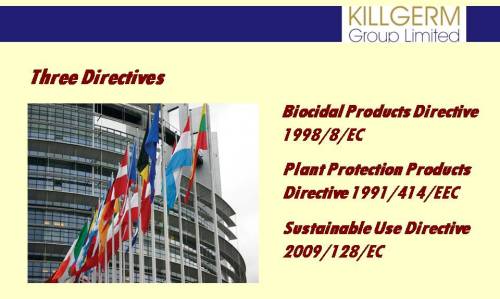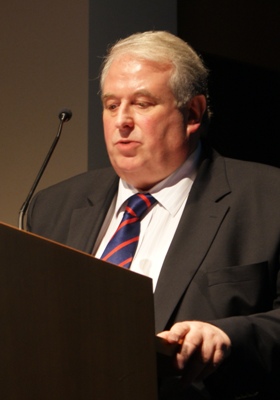Whilst other speakers at the recent ANID conference in Italy highlighted how much the industry across Europe had come together, Jonathan Peck revealed what the legislators in Brussels had in store.

| In 30 minutes and with the relevant implications of three EU Directives to discuss, Jonathan Peck, chairman of the UK-based Killgerm Group, gave a speedy tour of the key points all pest controllers across Europe have to face.
Already in force, both the Plant Protection Directive (PPD) which deals with products destined for agricultural uses and its comparable Biocidal Products Directive (BPD) for non-agricultural products (which includes pest control) have directly affected the range of products available for use. Before implementation of the BPD, in 1998 there were approximately 1,000 active substances available. Of these only 400 were notified, with only 200 supported by their manufacturers. Taking insecticides, 107 were notified yet only 50 supported and for rodenticides the comparable figures were 17 and 14. At a stroke, active substances such as boric acid, hydroprene, calciferol and zinc phosphide were lost. Despite all anticoagulant rodenticides having achieved dates for admission onto Annex 1, Jonathan pointed out this was by no means the end of the story. The European Commission is now proposing to label all anticoagulants as teratogenic (toxic to reproduction) which would result in their use being banned – see story in full here. “It is essential to start consultations as soon as possible with government departments across Europe to ensure the specific needs of the public health pest control industry are taken into account,” exclaimed Jonathan. |
|
Looking to the future, Jonathan continued: “Whilst the PPD and the BPD were designed to control what we could use and when, the next Directive on the horizon – the Sustainable Use Directive (SUD) – will affect who can use these products and how.”
In the UK interested parties only have until 4 May to make their views known. All EU Member States have until 14 December 2011 to implement the SUD. This Directive aims to establish a framework for reducing risks to the environment and to human health. Initially it is to address the agricultural sector, but at a later date (likely time-frame of four years), will move onto biocides. Topics such as training and certification of users and advisers, testing of application equipment as well as safe handling, storage and waste disposal will be covered. The Directive defines what a ‘professional user’ is, so making it quite clear who will be able to buy and use a professional use only product.
Across Europe pest control technicians will need to be qualified and registered. Jonathan concluded his talk by asking the audience for a show of hands in reply to the question: “How many of you would like technicians to be registered.” The response was virtually unanimous – virtually every hand rose. The only question remaining is when this will come about?


